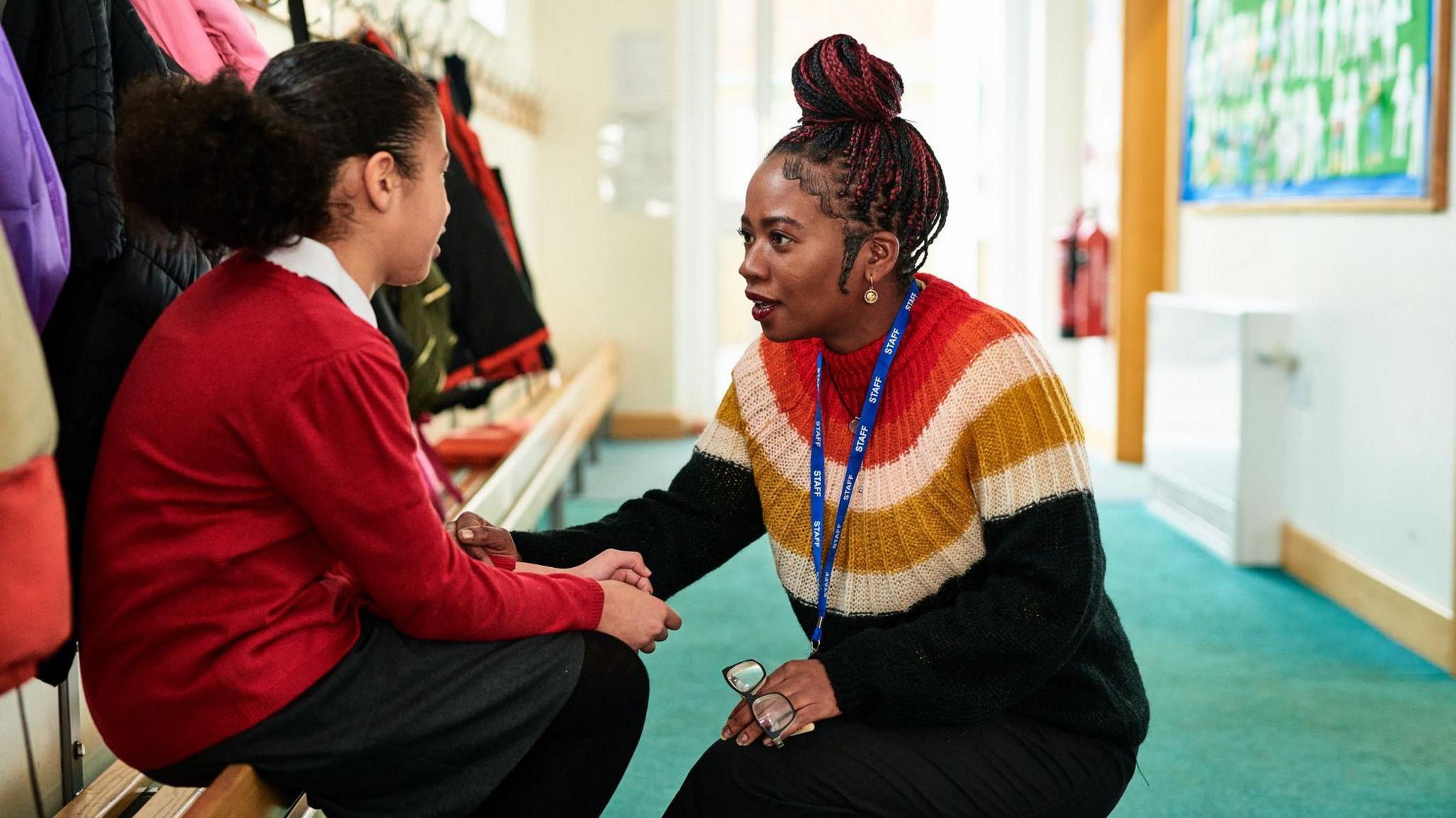What is Anti-Bullying Week?

It's important to tell an adult you trust if you are being bullied
- Published
Anti-Bullying Week is a time when children, teachers and parents are encouraged to take a stand against bullying.
This year it starts on Monday 10 November through to Friday 14 November and the theme is 'Power for Good'.
It's been chosen to empower children and young people to support others and "build a world where kindness wins".
Anti-Bullying Week: What is bullying?
- Published6 November 2023
What is Odd Socks Day?
- Published12 November 2024

The Anti-Bullying Alliance defines bullying as repeatedly and intentionally hurting someone.
Bullying can happen online or in person, and be physical, verbal or emotional.
As part of Anti-Bullying Week, lots of schools do special assemblies to raise awareness and celebrate Odd Socks Day too.
On the day people are encouraged to wear odd socks to symbolise that our differences should be celebrated and that children should be themselves.
Using your Power for Good
These kids explain how important kindness is in the fight against bullying
There are lots of ways you can make sure you are kind and include people who might be feeling left out.
Whether that's asking people to join in games on the playground, being supportive when someone seems upset, or telling a teacher if you see someone being unkind.
If you are worried that you or people that you know are being bullied, speak to an adult that you trust you about it. That might be a teacher or someone in your family.
Or you can call ChildLine for free on 0800 1111.
